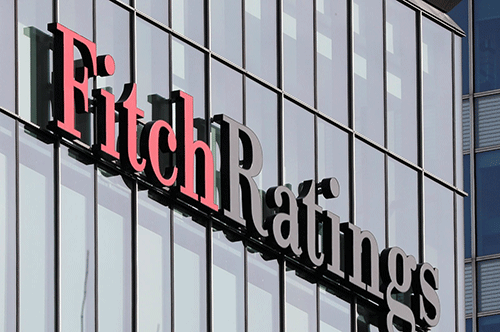Finance minister Iipumbu Shiimi has reiterated the stance that government is working hard to diversify the economy and to promote a sustainable economic recovery. These efforts, as he stated in his budget speech earlier this year, would eventually restore the country’s credit rating in the medium-term. Shiimi’s comments come as Fitch Ratings on Friday downgraded Namibia to ‘BB-’ from ‘BB’, with a stable outlook, in a move that will have adverse consequences for the country’s borrowing power.
In its reports, Fitch noted that key factors for the downgrade include the country’s elevated fiscal deficits. “Modest growth prospects and a rigid expenditure profile will maintain high fiscal deficits relative to ‘BB’ peers. Fitch estimates the general government fiscal deficit widened to 9.5% of GDP in the fiscal year ending March 2022, above the estimated ‘BB’ median 5% deficit for 2021, from-8.2% in FY20/21,” the Fitch report read.
The ratings agency continued that international financing conditions have tightened, which they expect will lead to further increases in the government’s interest bill, that during the 21/22 financial year stood at 16% of revenue.
“Growth in tax revenues and a freeze on the public sector wage bill (55% of revenues in FY21/22) for the fourth consecutive year should support improvement in the general government (GG) primary balance in FY22/23, but Fitch expects the overall deficit to remain elevated at 7.6% of GDP, significantly above the current 4.8% 2022 deficit forecast for the ‘BB’ median, and also above the government’s forecast of 5.6%,” the Fitch report reads.
Meanwhile, Fitch remains concerned about Namibia’s high rising debt and estimates GG debt rose to 68% of GDP during the FY21/22, significantly above the estimated 55% of GDP in 2022. Despite government’s fiscal consolidation efforts, Fitch forecasts that the rigid fiscal structure, rising interest costs and the gradual nature of the economic recovery will maintain government debt on an upward trend reaching 75% of GDP by the 2024/25 financial year.
Fitch also remains concerned about weak growth prospects for the Namibian economy, noting that the domestic economy is estimated to have expanded by 2.4% in 2021, after contracting 7.9% in 2020.
“This compares with ‘BB’ median growth of 5.9% in 2021, after a contraction of 4.1% in 2020. Namibia’s recovery was primarily driven by the mining sector, which in turn was supported by increased diamond, gold and uranium output. Fitch expects growth to increase to 2.8% in 2022 and 3.1% in 2023, supported by additional increases in mining production and continued recoveries in secondary and tertiary industries,” the ratings agency stated.
Despite this optimistic growth outlook, Fitch nevertheless believes the adverse impact from the war in Ukraine on global growth prospects and energy prices as well as tighter global financing conditions represent headwinds for the Namibian economy. Moreover, Fitch points out that the gradual nature of a domestic recovery, partly explained by structural constraints on growth, will result in real GDP not recovering to pre-pandemic levels until 2024 and is expected to contribute to the rising trajectory in government debt levels.


